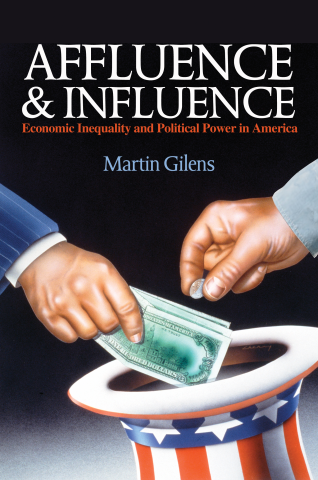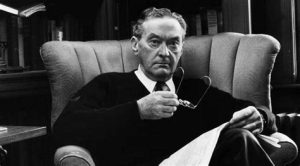“Each of four theoretical traditions in the study of american politics – which can be characterized as theories of majoritarian electoral democracy, economic elite domination, and two types of interest group pluralism, majoritarian pluralism and biased pluralism – offers different predictions about which sets of actors have how much influence over public policy: average citizens; economic elites; and organized interest groups, mass-based or business-oriented. a great deal of empirical research speaks to the policy influence of one or another set of actors, but until recently it has not been possible to test these contrasting theoretical predictions against each other within a single statistical model. this paper reports on an effort to do so, using a unique data set that includes measures of the key variables for 1,779 policy issues. multivariate analysis indicates that economic elites and organized groups representing business interests have substantial independent impacts on u.s. government policy, while average citizens and mass-based interest groups have little or no independent influence. the results provide substantial support for theories of economic elite domination and for theories of biased pluralism, but not for theories of majoritarian electoral democracy or majoritarian pluralism.”






![Tragedy and Hope: A History of the World in Our Time 51afNeyyWhL._SX346_BO1,204,203,200_[1]](https://cognitive-liberty.online/wp-content/uploads/51afNeyyWhL._SX346_BO1204203200_1-209x300.jpg)
![The structure of power eb34b30820f6083ecd0b4401ef444f94eb6ae3d01db2144795f9c070_640[1]](https://cognitive-liberty.online/wp-content/uploads/eb34b30820f6083ecd0b4401ef444f94eb6ae3d01db2144795f9c070_6401-300x300.png)
![Plutocracy/Elitism ed3cb80b20f51c3e815b410cee45449efe76e7d11bb613449df7c6_640[1]](https://cognitive-liberty.online/wp-content/uploads/ed3cb80b20f51c3e815b410cee45449efe76e7d11bb613449df7c6_6401-300x212.jpg)

![Julian Huxley, UNESCO, and Eugenics iur[1]](https://cognitive-liberty.online/wp-content/uploads/iur1-272x300.jpg)
![Harold Pinter – Nobel Lecture iu[1]dd](https://cognitive-liberty.online/wp-content/uploads/iu1dd-300x292.jpg)

![Cass Sunstein - Cognitive infiltration iu[4]](https://cognitive-liberty.online/wp-content/uploads/iu4-300x300.jpg)

![Dīvide et imperā - Divide and rule Philip-ii-of-macedon[1]](https://cognitive-liberty.online/wp-content/uploads/Philip-ii-of-macedon1-225x300.jpg)
